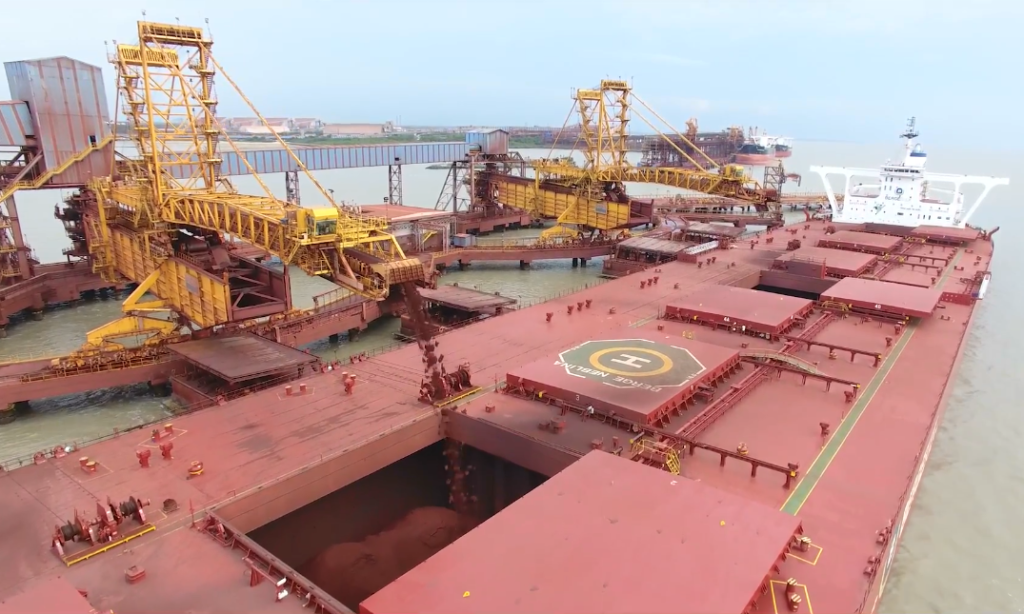
Inaccurate cargo declaration for solid bulks
read more

Mandatory requirements for shipper information on solid bulk cargoes have existed for quite some time, yet, inaccurate or incomplete cargo declarations are still commonplace in shipments leaving Brazilian ports
Domestic law and international regulations require shippers to provide the master or his representative with adequate written information about solid bulk cargo intended to be shipped well in advance as a condition for commencing loading operations.
Basic information must include at least the shipper’s identity, cargo destination, full description and gross mass. Other information and forms may also be required depending on the nature of the shipment, such as individual schedules for certain solid bulk products, current valid physical and chemical cargo properties, and material safety data sheet, among other specific legal requirements.
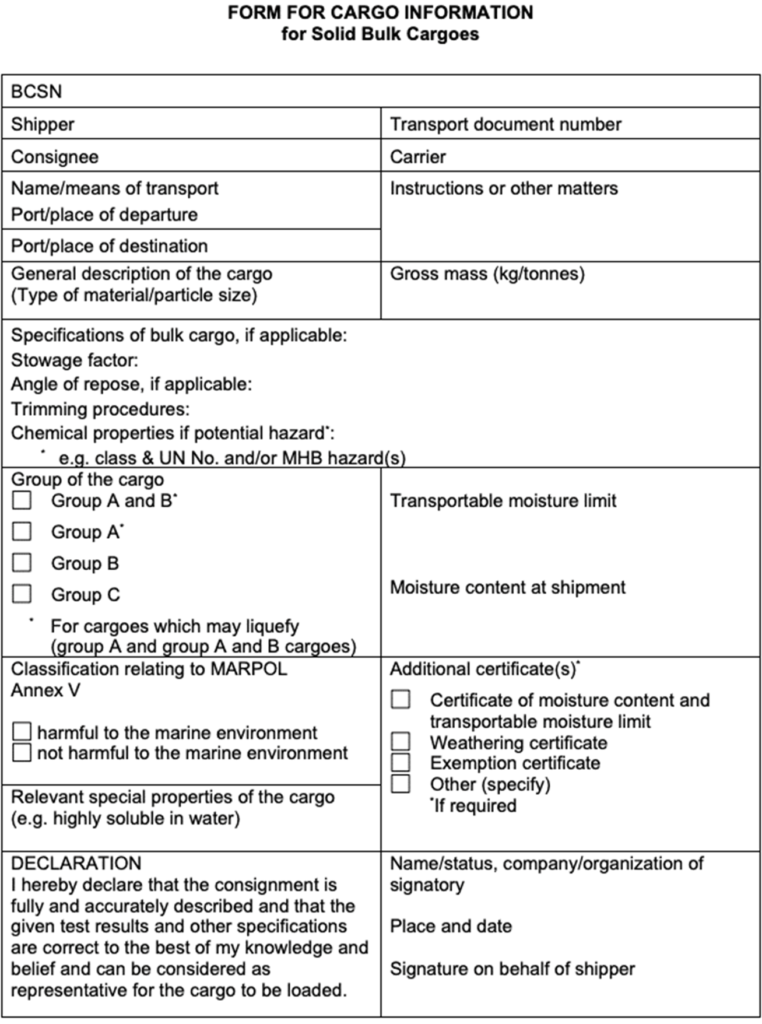
Although requirements for disclosing cargo information have been around for decades, it is still common to find shippers or superintendent companies acting on their behalf providing shipowners and masters with wrong or incomplete cargo information for mineral and agricultural products carried in bulk.
The Brazilian Civil Code establishes that cargo delivered to the carrier must be characterised according to its nature, value, weight, quantity, and whatever is necessary to avoid confusing it with other shipments. The Commercial Code, in its part still in force, stipulates that the bill of lading must describe the quality, quantity, weight and, if applicable, marks of the cargo received for transport. Neither statute requires a specific cargo declaration form.
The International Convention for the Safety of Life at Sea, 1974 (SOLAS), generally addresses various aspects of maritime safety. Chapter VI specifically deals with provisions for the safe carriage of solid bulk cargo.
The International Maritime Organization (IMO) expanded SOLAS provisions in the form of the International Maritime Solid Bulk Cargoes Code, 2008 (IMSBC Code), which introduced a set of procedures to be adopted when shipment of listed solid bulk cargoes is contemplated. It became mandatory in 2011 under the SOLAS Convention.
The IMSBC Code requires sea carriage of all solid bulk cargoes other than grain to comply with its provisions and recommendations. With regard to cargo information, Regulation 2 establishes that
“The shipper shall provide the master or his representative with appropriate information on the cargo sufficiently in advance of loading to enable the precautions which may be necessary for proper stowage and safe carriage of the cargo to be put into effect. Such information shall be confirmed in writing and by appropriate shipping documents prior to loading the cargo on the ship“.
IMSBC Code, Chapter VI, Part A, Regulation 2
Among other statutory certificates, shippers or their representatives must provide shipmasters with a cargo information form including, as a minimum, the following details:
Where a solid bulk cargo is not listed, the Code requires shippers to provide the competent national authority, before loading, with the data on the characteristics and properties of the product proposed to be carried in bulk so that that authority can assess its acceptability for safe transport, issue the relevant approval documents and follow the reporting procedures outlined in the IMSBC.

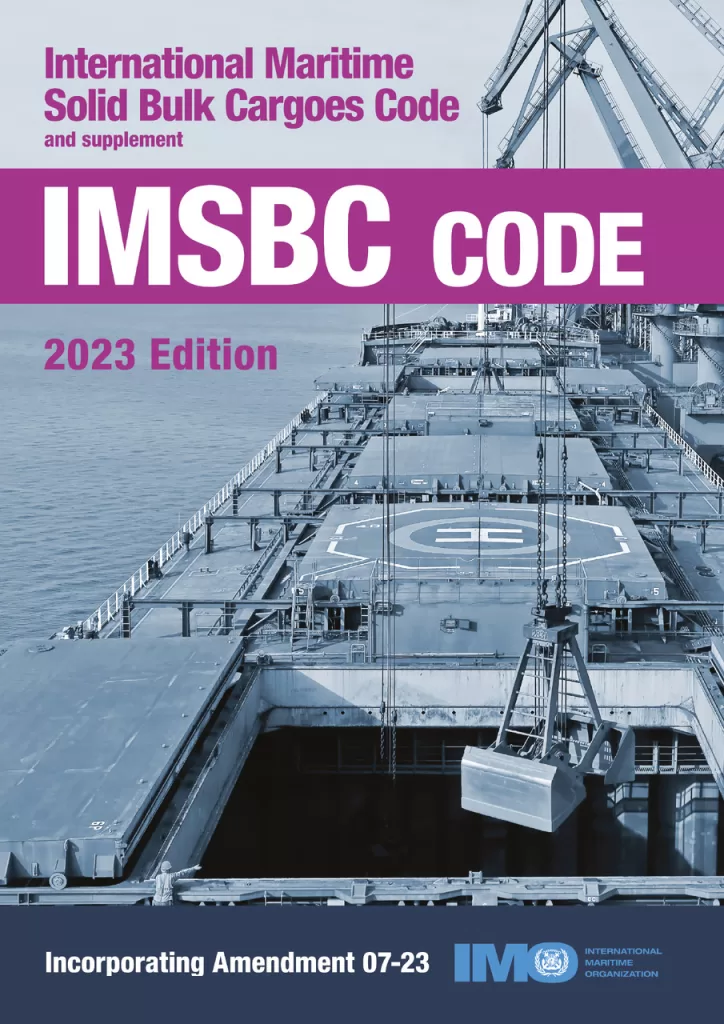
If the loading port authority determines that the intended unlisted cargo presents hazards, such as those of Groups A, B or A and B of the Code, the flag State and the competent authority at the discharge port should be consulted to dispense advice and impose conditions for safe carriage.
The IMSBC Code does not cover grain cargoes, which IMO regulates through the International Code for the Safe Carriage of Grain in Bulk, 1991 (Grain Code), including frequently exported commodities such as corn (maise) and soya bean – although the latter is an oilseed, it behaves as a grain in its natural state and, as such, is covered by the Grain Code.
The Grain Code is mandatory for all ships covered by the SOLAS Convention but does not prescribe a specific format for the shipper to relay cargo information. Some shippers and superintendent companies adopt the same form mandated by the IMSBC Code and only fill in the applicable fields of the document.
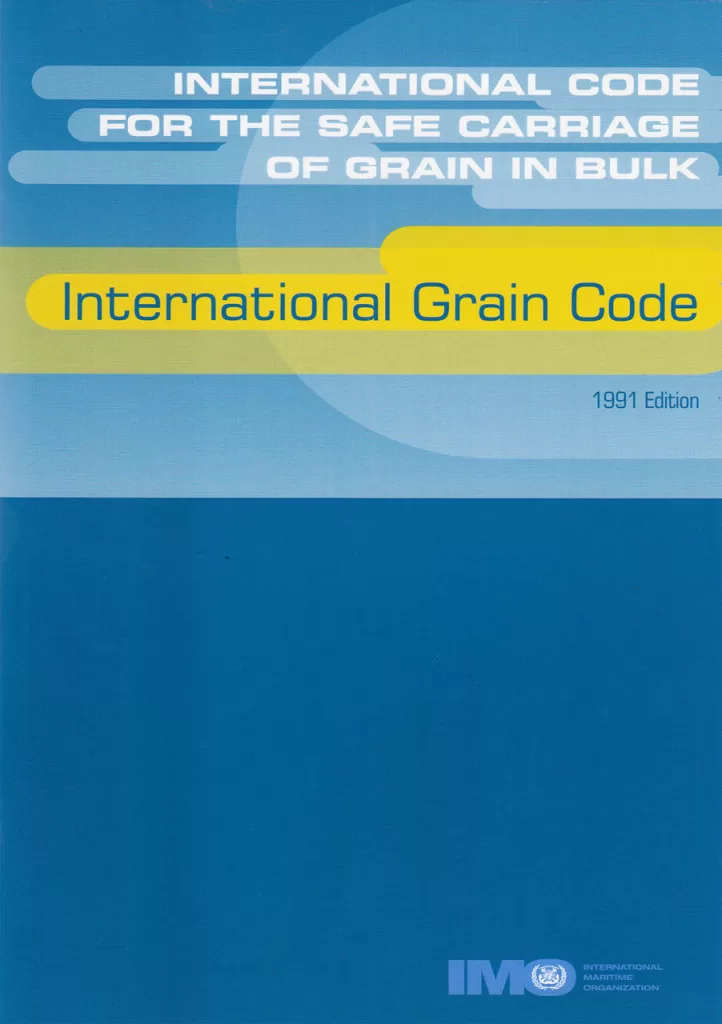
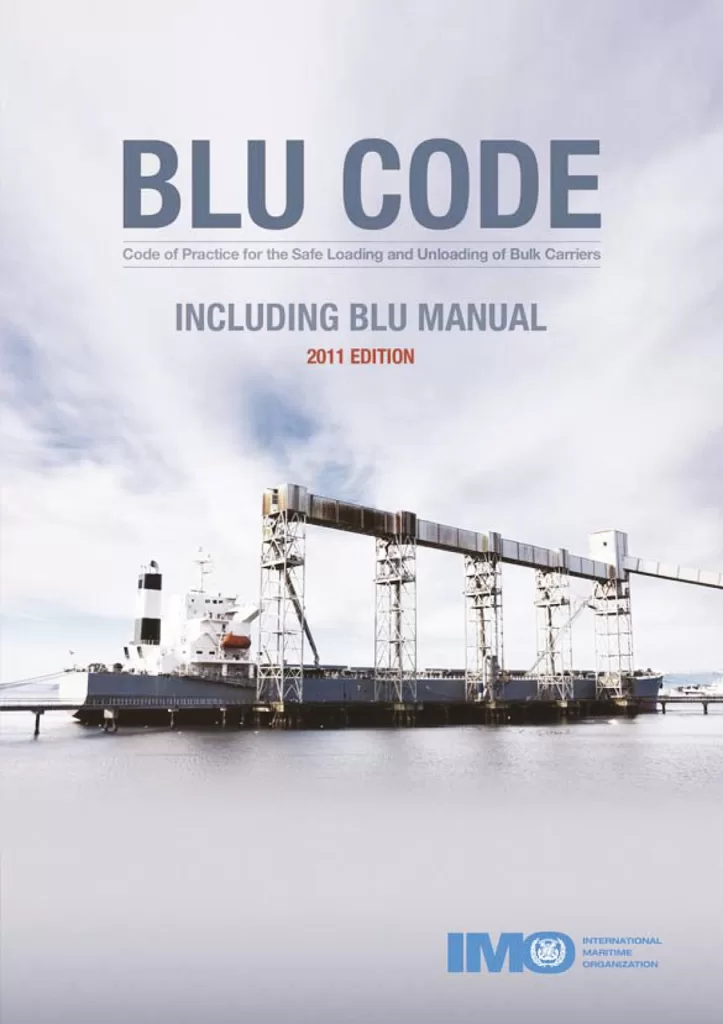
Indeed, any form of cargo declaration is acceptable for grain as long as it contains the essential statutory information and, where necessary, is accompanied by supporting certification.
While SOLAS broadly regulates cargo carriage by sea, IMO Code of Practice for the Safe Loading and Unloading of Bulk Carriers, 1997 (BLU Code) specifically guides shipmasters, terminals and stakeholders towards the safe handling, loading and unloading of solid bulks concerning structural and operational aspects of the vessel.
In 2005, IMO approved the Manual on Loading and Unloading of Solid Bulk Cargoes for Terminal Representatives (BLU Manual) to supplement the BLU Code. As its title suggests, the BLU Manual is aimed at terminal personnel to improve the ship-terminal interface for the smooth operation of bulk carriers.
Most of the liability when loading and carrying solid bulk cargo falls on the shoulders of the carrier through the master. He must satisfy all requirements of relevant local regulations and IMO codes.
Before loading starts, the master must acquire from the shipper and port operator all information necessary to calculate the vessel’s stability for proper cargo stowage and safe carriage, as well as agree on a documented loading and stowage plan with the port operator hired by the shippers to perform stevedoring services.
Under specific legislation (Law-Decree 116 of 1967), the carrier’s liability begins when the cargo is received on board and subsists until it is delivered to the consignee at the port of destination, tackle to tackle, in line with the general provisions of the Civil and Commercial Codes.
The master must refuse to transport cargo that is visibly in poor condition or that may pose a hazard to human health or the safety of the vessel and property on board. He must also reject any cargo not accompanied by legally required documents or whose appearance, order or condition does not correspond to the information stated by the shipper. Otherwise, the master remains responsible for the safe loading, stowage, safekeeping, and cargo delivery to the rightful consignee at the agreed discharge port.
Under domestic and international regulations, the shipper is legally responsible for providing the carrier with all necessary descriptions of the cargo intended for transport, ensuring that all legal requirements and procedures are fulfilled before loading. It includes compliance with rules and norms issued by the Ministry of Agriculture, Livestock and Supply (MAPA) and other federal regulatory bodies, such as the National Mining Agency (ANM).
In the Brazilian jurisdiction, the carrier is entitled to compensation from the shipper for losses resulting from disclosing inaccurate or false cargo information. In jurisdictions where international limitation conventions apply, the owner is generally exempt from liability for damages resulting from goods unsafe for sea carriage being incorrectly declared – or not declared at all – which otherwise lies with the shipper.
The operator of the port terminal or facility is legally liable for ensuring that the loading and stowage of cargo are carried out as agreed with the master or his duty officer and for unloading any cargo whose carriage is prohibited or whose apparent order and condition deviates from the information furnished by the shipper.
Likewise, the port operator is liable to the owner for damage caused to the ship and to the shipper for shortage or damage during or as a result of the loading operation.
Even though the regulations covering cargo declarations have been around for some time, it is still usual to see Brazilian shippers and superintendent companies furnishing inaccurate or incomplete cargo information and declaration forms to the master.
The most common problems with cargo declarations for solid bulks include, but are not limited to:
The shipper’s cargo declaration is a mere statement of the contractual quality specifications that ultimately bind sellers and buyers, many of which are not verifiable by ship personnel at the time of loading or during the voyage.
Master and crew should, therefore, ensure that cargo information is up to date and derives from representative analyses of the lot to be shipped, particularly concerning the average moisture content (MC) and transportable moisture limit (TML) of the load.
Regardless of the fact that most qualitative parameters are not verifiable by the crew – and cargo declaration and certification are, in many cases, not specific to the cargo to be loaded or not representative of the entire shipment, it is crucial that the owner and master secure documentary evidence provided by the shipper or its representative to safeguard its eventual recovery opportunities.
If there is any doubt about the accuracy or completeness of the cargo declaration or any supporting certification provided by the cargo interests, or the cargo loaded is obviously in disagreement with that manifested, the master should consult with the owner and P&I insurer to consider instructing the local correspondent to review the information provided and, if necessary, send a qualified surveyor on board to check the actual quality and condition of the cargo.
The surveyor should be able to identify potential hazards or precautions to be implemented by the master and crew for safe cargo loading, stowage and transport. He should also be able to advise the owner and master on the need to collect representative samples or carry out independent testing, including can tests and laboratory analysis to determine the actual parameters of the shipment.
In the event of disputes regarding cargo declaration, charterers should be included in the discussions with cargo interests from the outset, and shippers should be placed on notice.
International conventions on limitation of liability, such as the Hague Rules, the Hague-Visby Rules and the Hamburg Rules, generally provide that where flammable, explosive or dangerous goods which the carrier, master or their representatives have not knowingly consented with knowledge of their actual unsafe nature and character, the loading may be refused, or, if the cargo has already been stowed on board, unloaded and disposed of at the expense, time and risk of the charterers, with the shippers being accountable for all damages and costs directly or indirectly resulting from incorrect or absent cargo declaration.
Brazil has not ratified any of these conventions. On the other hand, the Civil Code stipulates that the shipper is liable for losses resulting from inaccurate or false cargo information, provided the carrier files the claim in court within 120 days, under penalty of lapsing of right. The remedy contained in this legal provision has not been tested before the courts of appeal, at least with regard to disputes over cargo damage or loss resulting from inaccurate cargo declaration.
Inaccurate cargo description and quality information may prevent the carrier, master and crew from suitably preparing the ship for loading and stowage and adopting proper cargo care during passage, including in-transit fumigation measures and ventilation regimes.
Omitted or mistaken information about a cargo that presents inherent hazards or requires additional safety measures can generate multiple losses, many of them with devastating consequences. It includes claims for cargo deterioration due to mould, self-heating, or change in physical state, extra costs for delays, deviation, additional port handling, damage to the ship, salvage, and general average. In extreme cases, inaccurate cargo information can lead to cargo fire, liquefaction or dynamic separation, environmental damage, sinking and loss of life.
Whenever the shipper fails to provide cargo information or the information provided is inaccurate or incomplete, the master should not allow loading to commence. He should only do so after the shipper has satisfactorily corrected the data or provided additional documentary evidence as necessary.
Please read our disclaimer.
Related topics:
Rua Barão de Cotegipe, 443 - Sala 610 - 96200-290 - Rio Grande/RS - Brazil
Telephone +55 53 3233 1500
proinde.riogrande@proinde.com.br
Rua Itororó, 3 - 3rd floor
11010-071 - Santos, SP - Brazil
Telephone +55 13 4009 9550
proinde@proinde.com.br
Av. Rio Branco, 45 - sala 2402
20090-003 - Rio de Janeiro, RJ - Brazil
Telephone +55 21 2253 6145
proinde.rio@proinde.com.br
Rua Professor Elpidio Pimentel, 320 sala 401 - 29065-060 – Vitoria, ES – Brazil
Telephone: +55 27 3337 1178
proinde.vitoria@proinde.com.br
Rua Miguel Calmon, 19 - sala 702 - 40015-010 – Salvador, BA – Brazil
Telephone: +55 71 3242 3384
proinde.salvador@proinde.com.br
Av. Visconde de Jequitinhonha, 209 - sala 402 - 51021-190 - Recife, PE - Brazil
Telephone +55 81 3328 6414
proinde.recife@proinde.com.br
Rua Osvaldo Cruz, 01, Sala 1408
60125-150 – Fortaleza-CE – Brazil
Telephone +55 85 3099 4068
proinde.fortaleza@proinde.com.br
Tv. Joaquim Furtado, Quadra 314, Lote 01, Sala 206 - 68447-000 – Barcarena, PA – Brazil
Telephone +55 91 99393 4252
proinde.belem@proinde.com.br
Av. Dr. Theomario Pinto da Costa, 811 - sala 204 - 69050-055 - Manaus, AM - Brazil
Telephone +55 92 3307-0653
proinde.manaus@proinde.com.br
Rua dos Azulões, Sala 111 - Edifício Office Tower - 65075-060 - São Luis, MA - Brazil
Telephone +55 98 99101-2939
proinde.belem@proinde.com.br